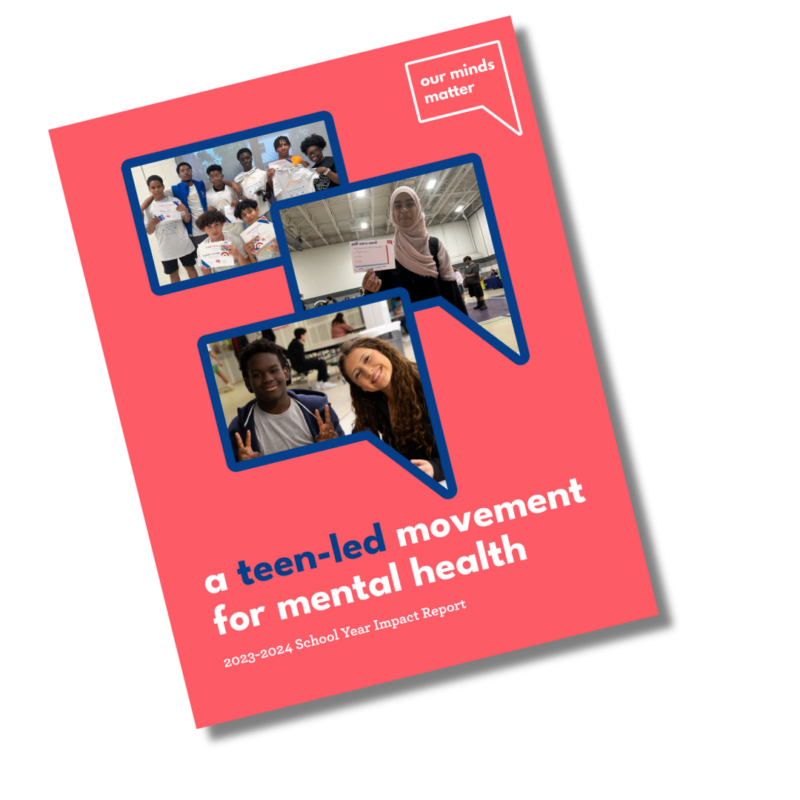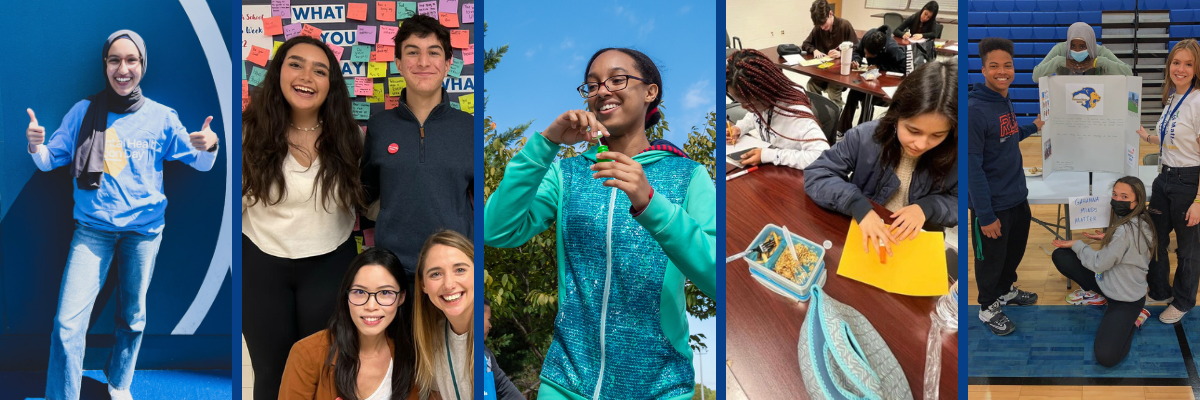2023-2024 impact report
a teen-led movement for mental health.
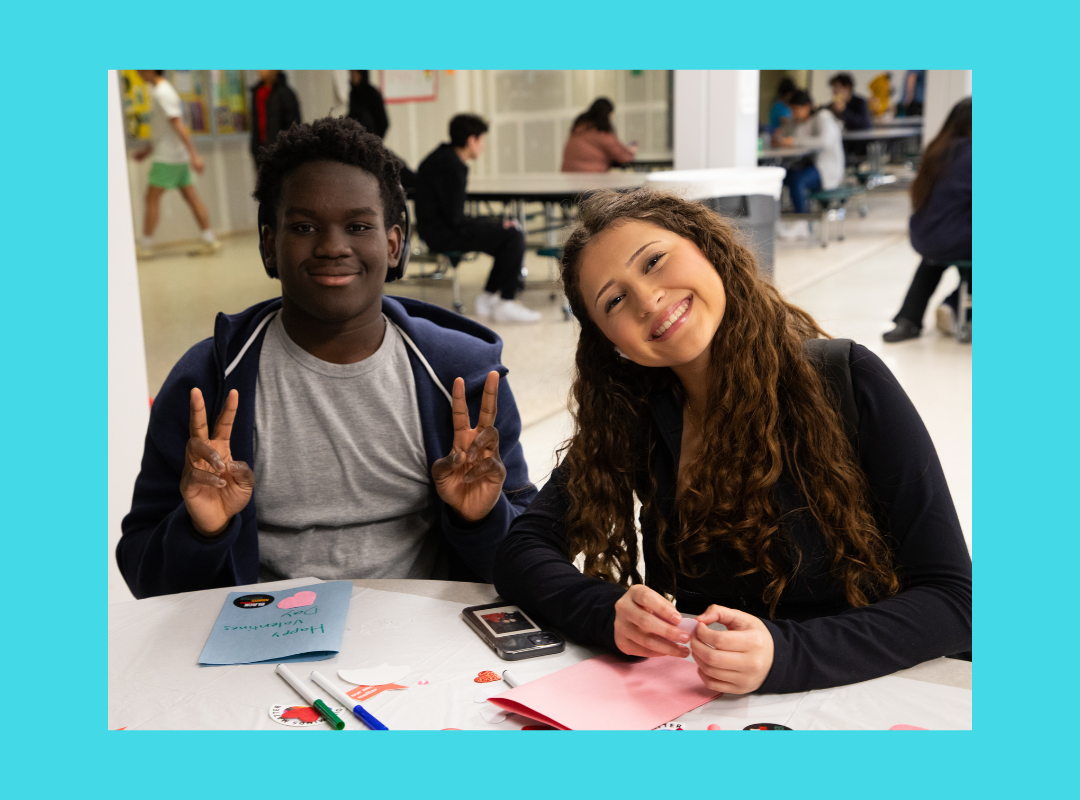
—High school club member“omm has impacted my mental health
by showing me community.”
our minds matter is working toward the day when no teen dies by suicide.
In recent years, with your support, we have grown our club footprint while tripling our reach — delivering life-saving mental health peer support to 66,700+ teens last year alone. And word is getting out about our impact: We were especially thrilled by our recent American Psychiatric Association Foundation Award for Advancing Minority Mental Health, as well as our Children’s Mental Health Innovation Award from Morgan Stanley.
Our growth has happened alongside increasingly widespread awareness of the teen mental health crisis and, crucially, of the central role social connectedness plays as a cornerstone of mental well-being. As the Surgeon General warned in 2023, loneliness is as harmful as smoking.
From media reports to philanthropic investments, we are seeing so many partners join in the effort to ensure that every teen can build the authentic social bonds and sense of belonging we all need for mental wellbeing. We are proud that our flagship Our Minds Matter model, launched in 2016, has proven to be a leader in this movement. Firmly grounded in the benefits of social connectedness, our model offers insights and pathways for others seeking to build effective, sustainable mental well-being across the culture of a school and community.
The next year will be a pivotal one for us as we position our model for continued scale. We are so grateful to have you alongside us. To all of our donors, partners, volunteers, and teens in the OMM program: Thank you for being a mental health champion!
by the numbers
149 clubs nationwide
Our work is concentrated in the DC metro area, where we have strong partnerships with the public school districts in Fairfax County, VA; Montgomery County, MD; and Washington, DC.
Our rapidly expanding middle school program is now serving 39 schools
We are working with students in many schools that serve majority low-income students. Across our entire network, about 38% of club members qualify for free and reduced meals.
We are providing tailored, culturally-responsive resources for teens of diverse backgrounds, including (but not limited to) LGBTQ+ and BIPOC students.
With a club retention rate of approximately 88%, we are deepening our impact year-over-year as clubs become an integral part of school culture.
—High school sponsor“each year [our club] garners more recognition and students are more excited to participate in the program.”
new & noteworthy
morgan stanley innovation award
OMM was one of six nonprofits to win the prestigious Children’s Mental Health Innovation Award from Morgan Stanley. The award recognizes the impact of our new Teen Center Program, piloted in the 2023-24 school year in all 13 teen and community centers in Fairfax County. We want to share our thanks with our partners at Neighborhood and Community Services of Fairfax County, the government agency that oversees these centers.
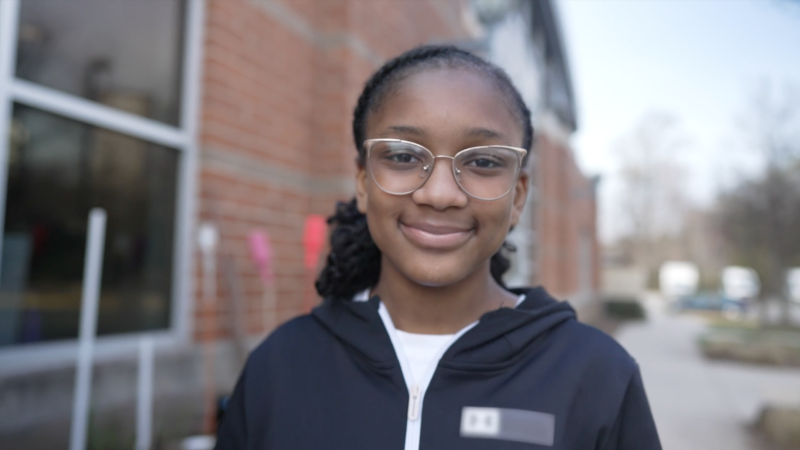
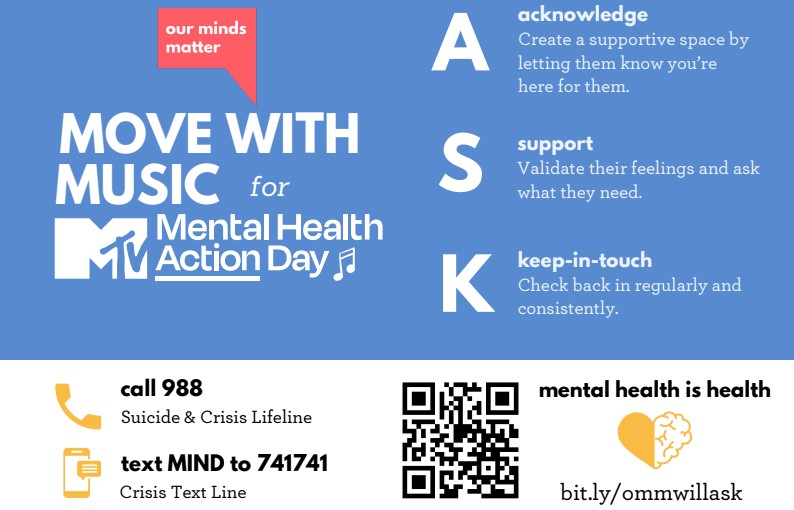
moving with music
For the second year in a row, we partnered with MTV Entertainment Studios to encourage schools to “Move with Music” for Mental Health Action Day 2024. Teens at 36 participating schools and community center sites led a pause in the day by making a special announcement of positive affirmations, a music break, and a call-to-action.
award for advancing minority mental health
We were thrilled to be recognized by the American Psychiatric Association (APA) Foundation with one of 11 awards “for helping to advance mental health equity for our neighbors in need and their families,” according to the APA.
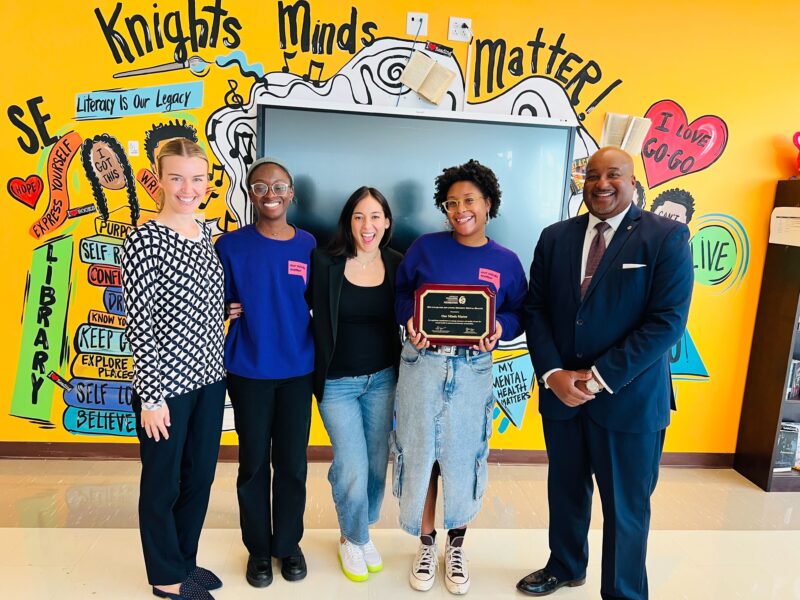
club features
Stories of teens cultivating their own well-being and supporting their peers.
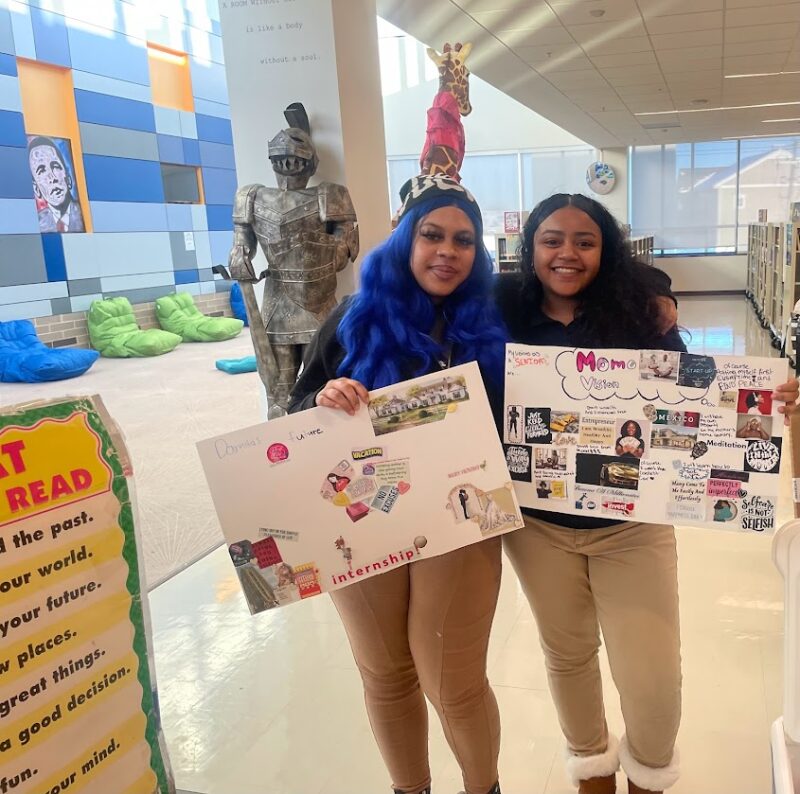
envisioning your future
As an antidote to spring semester exhaustion, the Knights Minds Matter club at Ballou High School gathered for an OMM-designed Vision Board Activity. Students spent a relaxing afternoon chatting and creating collages using magazine pictures, motivational stickers, and affirmations, in an activity encouraging self-care, creativity, and social connectedness, as well as goal-setting. Teens’ vision boards included dreams of travel, fulfilling jobs, families, financial goals, and living lives that center well-being.
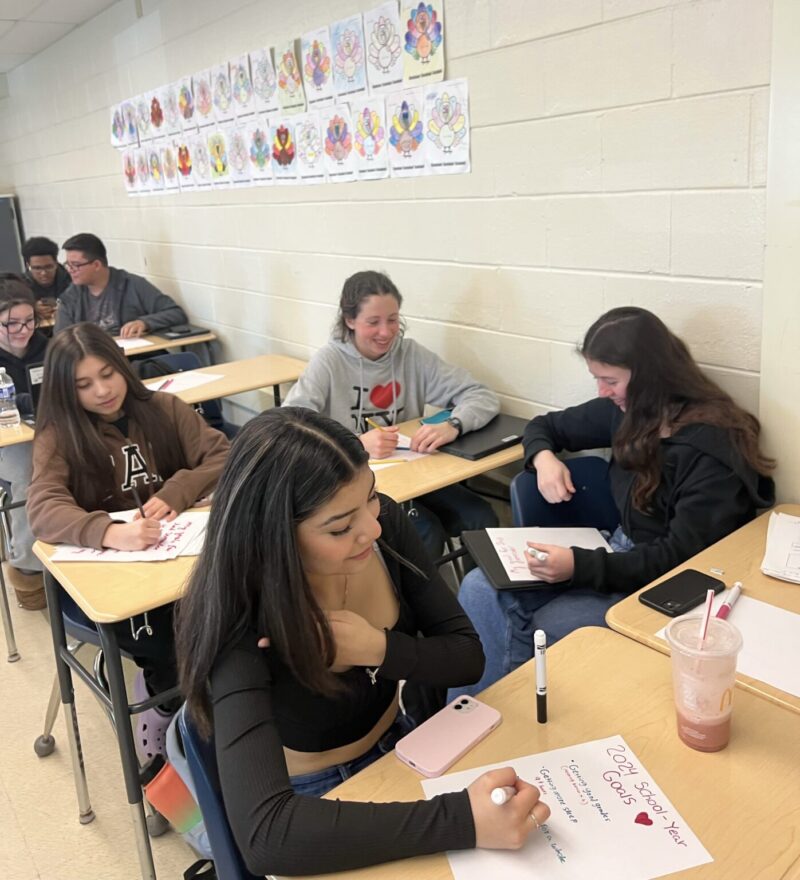
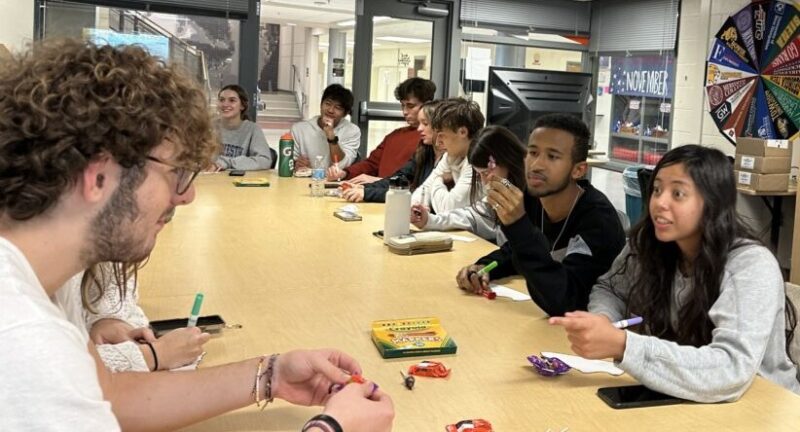
what's in your hope box?
At Thomas Edison High School, the teen leaders of Edison Minds Matter were awarded the 2024 Fairfax County Peace Award for their inspired work uniting their school community and reducing mental health stigma. Just one example of their activities: This spring, the club gathered to create “hope boxes,” writing down goals and aspirations as a way of sharing their hopes, visualizing their futures, and cultivating a positive outlook. The club saved all of the teens’ notes as a time capsule, which they opened in the spring to reflect and share.
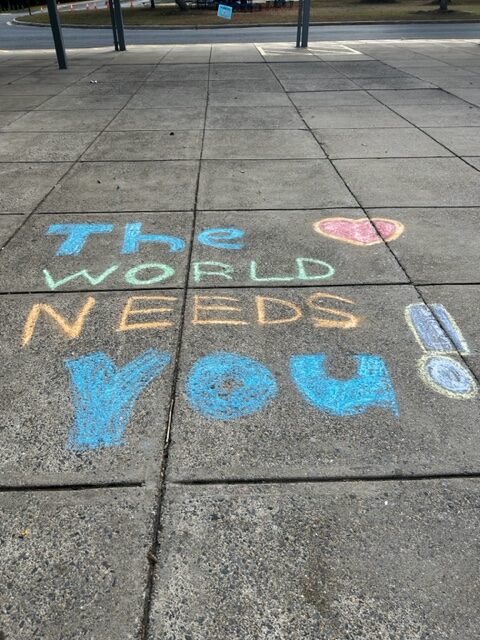
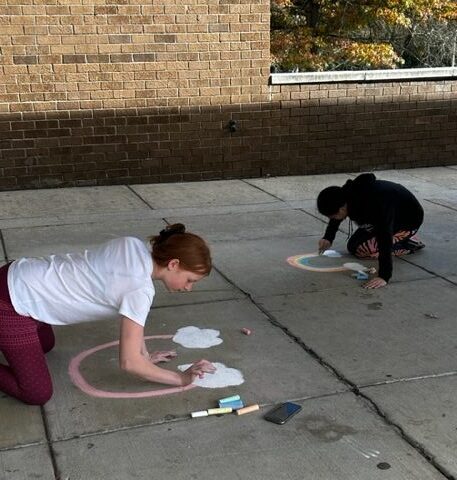
kindness rocks!
At Robert Frost Middle School, teens in the Eagle Minds Matter club decided to mark World Kindness Day in November by blanketing their school with affirmations. Students gathered to decorate rocks, as well as the sidewalks of their school, with chalk drawings and positive messages like “You matter” and “Love yourself and be kind.” The activity let club members relax and create together. And, because they spread their artwork across the front of the school, the club also shared kindness with the entire student body.
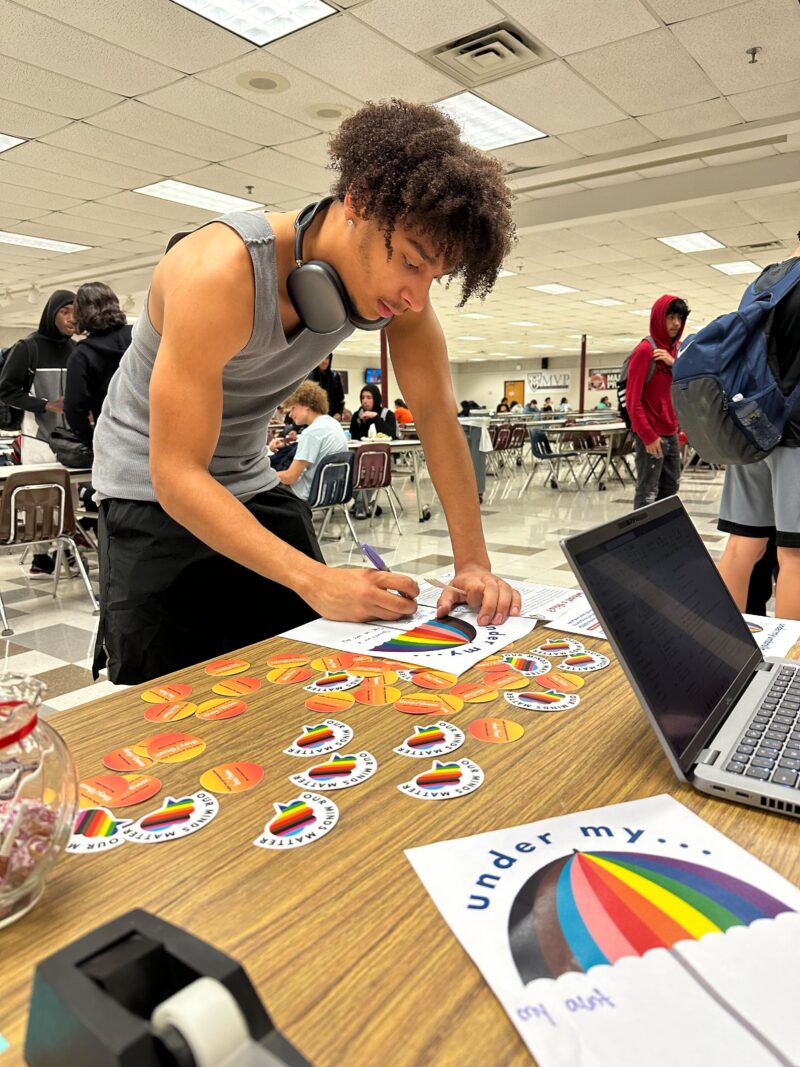
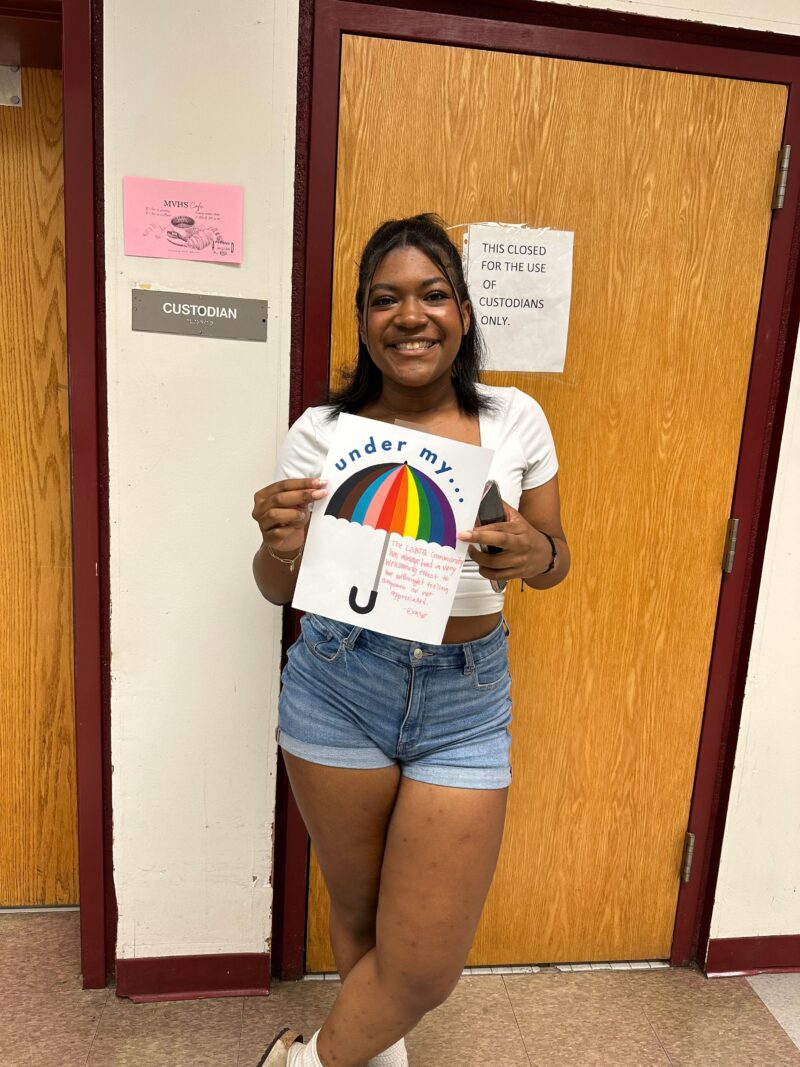
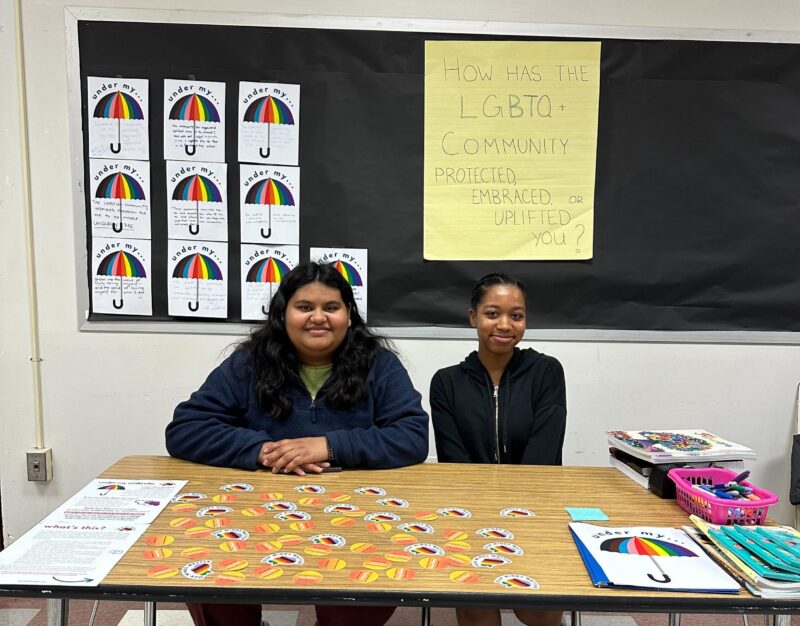
under my umbrella
In spring 2024, we launched a new campaign celebrating the joy that the LGBTQ+ community brings to the world: “Umbrellas protect us from storms and community does the same.” Inviting teens to write down how the LGBTQ+ community has uplifted or embraced them, the campaign creates a collage of rainbow-colored umbrellas for a highly visible and meaningful statement. By mailing campaign supply kits to 35 Virginia clubs to run the campaign at the same time, we also fostered peer connectedness across our network.
Special thanks to our partners at the Virginia Department of Behavioral Health and Developmental Services.
—High school teen leader“we have become a closer community and have involved the entire student population in events to get rid of the stigma surrounding mental health.”
omm clubs are:
teen-led
based on prevention research that shows the power of peer-to-peer influence.
easy and seamless
for students and school sponsors to set up, run, and sustain.
evidence-informed
using an “upstream” suicide prevention model that connects teens with resources before mental health struggles become crises.
in omm clubs, teens build skills and habits in four areas empirically proven to enhance mental health and reduce suicide risk:
social connectedness
77.1% feel socially connected to other club members.
help-seeking behavior
73.2% are willing to seek help if struggling with mental health.
prosocial skills
84.5% feel confident in supporting a peer who is struggling.
healthy habits
75.4% practice self care and healthy habits to improve wellbeing.
these protective factors are at the heart of how we evaluate our impact.
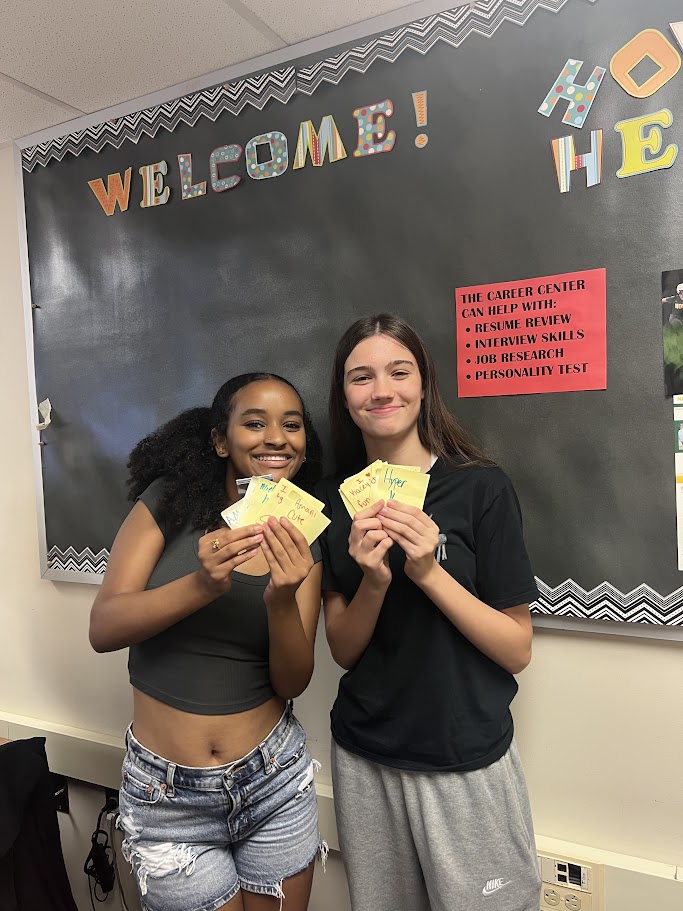
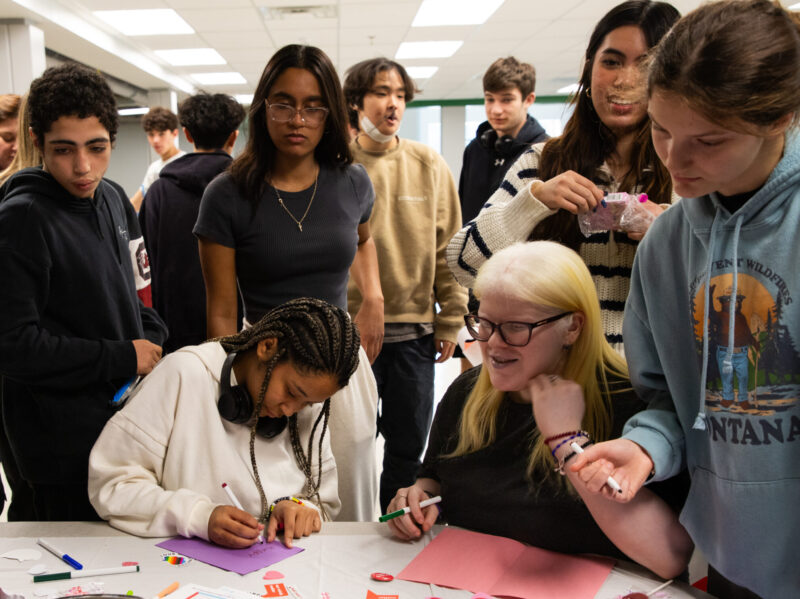
small moments of kindness
“During a self-care activity at an OMM club meeting at a middle school, students were asked to write down a reason they are proud of themselves. One teen sat for a long time, unable to think of anything. Then another club member leaned over and started listing out the positive traits she saw, recommending what the teen could write. This small moment, just between the two of them, spoke to how our program is building peer-to-peer support skills every day.
For a seventh grader to be able to recognize that a peer was struggling, to step in without being asked, and to provide genuine and kind support is a powerful testament to our impact.”
66,700+ teens served
A typical OMM club is led by 3 to 5 engaged student leaders, who host weekly or bi-weekly meetings for a consistent membership of 5 to 40 or more teens, overseen by at least one school staff sponsor. In the 2023-24 school year, 2,871 teens joined OMM clubs, and their campaigns and events reached more than 66,700 teens.
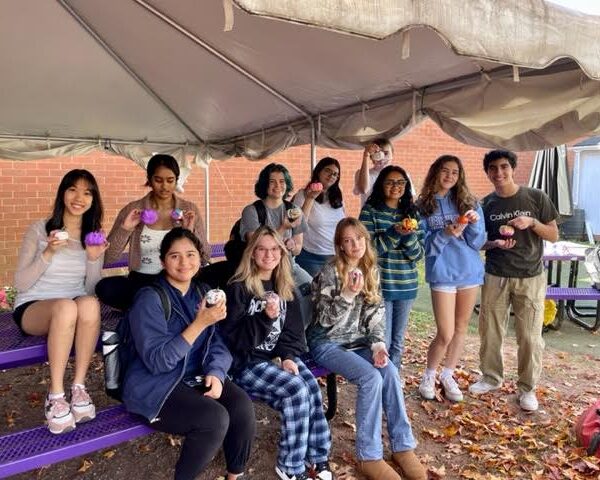
high school clubs
In our flagship high school model, teens take action to improve their own mental well-being and support a positive culture across their school community. All activities and school-wide events are reflective of teens’ own lived experiences and specific communities.
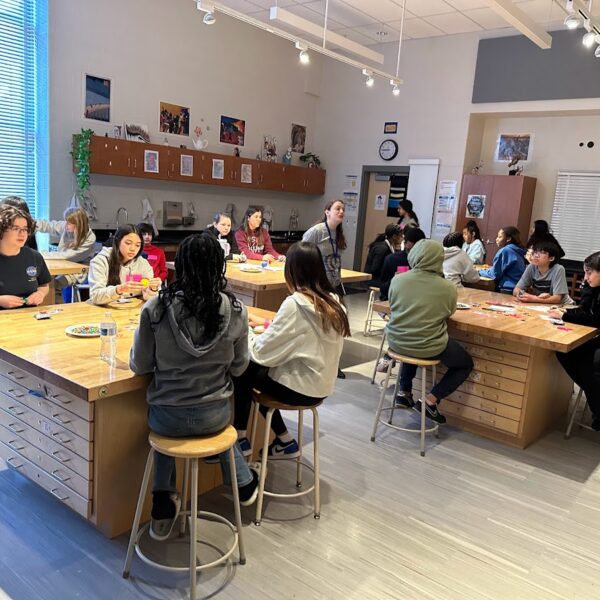
middle school clubs
With suicide rates rising among youth ages 10-14, we adapted our club model for younger students to strengthen coping skills and build healthy habits that can last a lifetime. Piloted in 2021-22, our middle school is now widespread through our partner districts in the DC metro area. These younger teens develop their leadership skills while working with the more-hands-on support of staff sponsors.
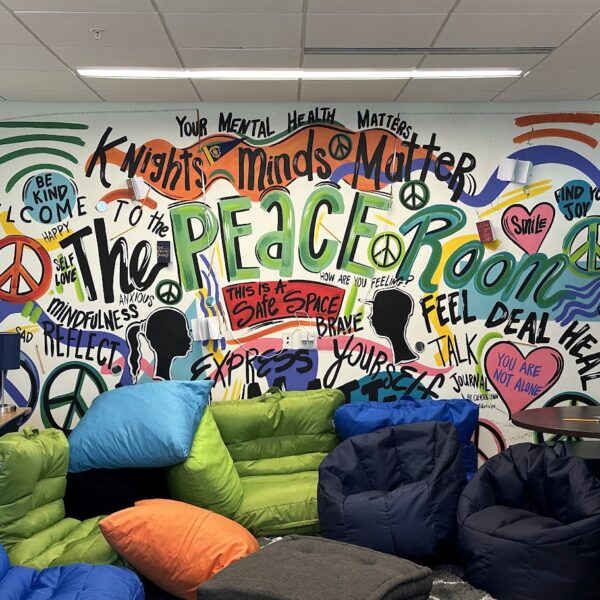
school-wide campaigns
OMM clubs also extend their impact through campaigns, through which teens reach exponential numbers of their peers throughout their schools and communities. Teen leaders organize therapy dog visits, sponsor craft projects to promote kindness, run LGBTQ+ acceptance campaigns, create designated “wellness rooms” (as pictured), and more. All grounded in teens’ own lived experiences and preferences, campaigns to encourage social connectedness while promoting life-saving mental health awareness, resources, and coping skills.
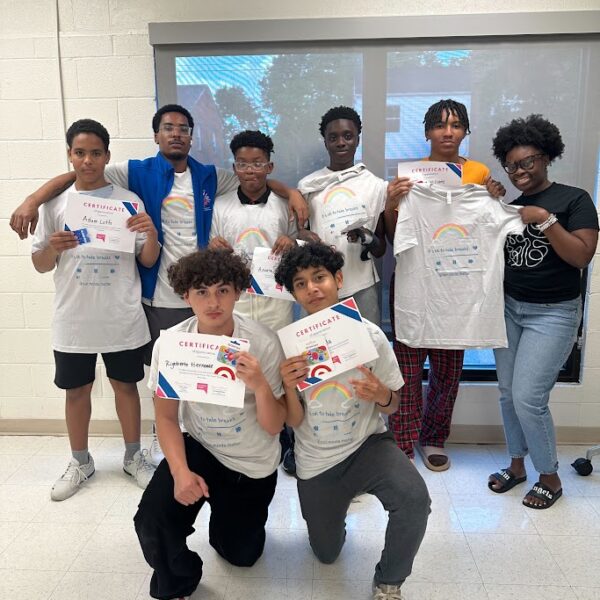
teen center pilot
In Fall 2023, we launched a pilot program to expand our successful school-based program model into new spaces — reaching a population of teens who face higher mental health risks and lower access to mental health access, and meeting them in the teen and community centers where they already are. Many of the participants in the program face barriers to participating in school clubs (such as needing to care for a sibling, or work a job). We surpassed our original goal — to serve 100 teens directly in year 1 — by December! More than 260 unique teens participated during the school year, and we are training community center staff to run the program sustainably into the future.
—2024 Middle school club member“i liked meeting with others who were dealing with the same things as me. it made me feel like i wasn’t alone.”
club demographics
race/ethnicity
- White - 23.5%
- Asian - 13.6%
- Black - 31.7%
- Hispanic/Latine - 20%
- Multiracial - 3.1%
- Not categorized - 8%
grade level
- 12th - 34.96%
- 11th - 26.1%
- 10th - 14.27%
- 9th - 14.8%
- 8th - 8.99%
- 7th - 2.37%
- 6th - 2.15%
sexual orientation (high school only)
- Heterosexual - 53.2%
- LGBTQ+ - 18.06%
- Not Sure - 2.9%
- Prefer Not to Answer - 25.81%
gender
- Cis-man - 16.22%
- Cis-woman - 52.93%
- Transgender - 1.8%
- Genderqueer, Nonbinary, Gender Fluid, Two Spirit - 2.25%
- Not Sure - 2.03%
- Prefer Not to Answer - 24.77%
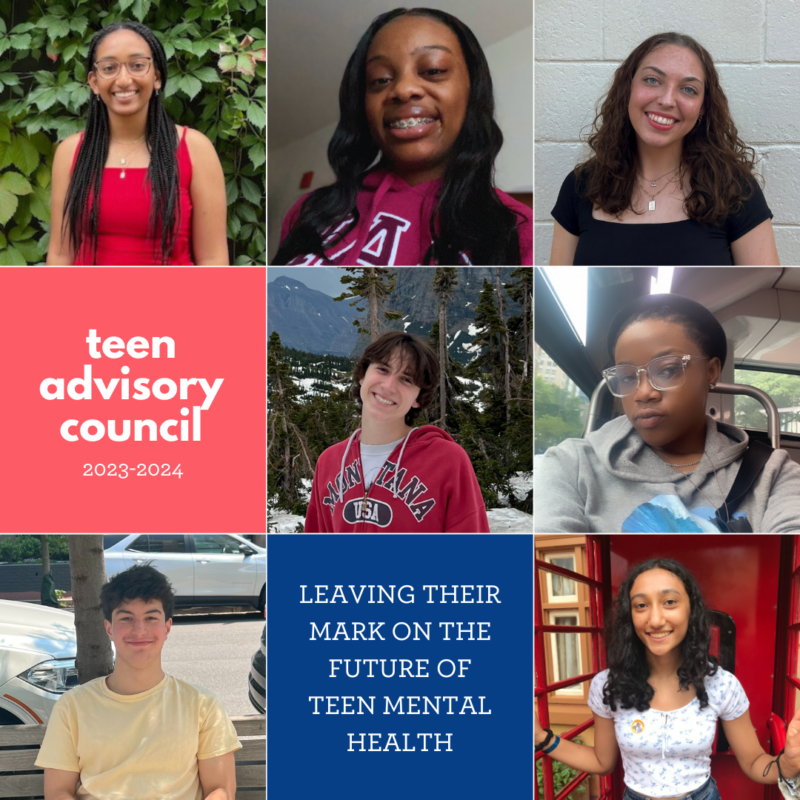
teen advisory council
As part of our commitment to teen leadership, our Teen Advisory Council offers a paid opportunity for eight student leaders from the OMM network to grow professionally while making their mark on the future of teen mental health. Students selected for the Council through an application process provide input on OMM’s goals, program, and communication strategies.
—2023-24 TAC Member“the destigmatization of conversations surrounding mental health is life-saving and incredibly valuable, and contributing to positive change in conjunction with that notion is so deeply personal to me.”
our model of support
While there are many “off-the-shelf” models for teen programming, OMM offers a uniquely hands-on approach for the clubs in our network.
We create tangible impact on teen participants’ mental health thanks to:
Our program team keeps in regular touch with clubs, including site visits to lead special activities. We also track meetings, attendance, and other key metrics so we can step in with support if a club is in danger of falling through the cracks. Teens and staff are busy, so we make clubs easy to set up, run, and sustain.
We provide clubs with a wide range of tangible help, including stipends to run events and campaigns, swag to raise awareness, a library of activities and curricula, and food for club meetings (about 35% of club members qualify for free and reduced school meal programs).
We have robust relationships with the public school districts in Washington, DC, Montgomery County, MD, and Fairfax County, VA. Through regular district partner meetings, we collaborate and integrate our work to support district mental health initiatives and connect clubs to more resources.
“your staff members are so caring and smart.”
“each year the club garners more recognition and students are more excited to participate.”
“the club was completely student run.”
“i love the ability to make the club work for our specific school setting and goals.”
“i feel fortunate to be part of omm.”
evidence of impact
Our work is firmly grounded in the latest youth mental health research and refined through our own data and evidence.
In recent years, our data has consistently shown that increased involvement with OMM (as measured by the number of club meetings attended and by club tenure) is associated with better mental wellbeing.
Teens who attend meetings more regularly tend to report higher scores on other program outcomes than their low-attendance peers:
Our data also shows that club participation improves individual teen mental wellbeing. We use a matched sample of OMM club participants to protect teens’ anonymity while comparing scores on our key protective factors from the beginning of the school year with those at the end.
when comparing individual year-end scores with those from the beginning, we see...
Teens saw meaningful improvements in their mental wellbeing and the increase was statistically significant.
There was a decrease in perceived mental health stigma at school.
Teens reported gains in their feelings of connectedness to peers, self-care habits and coping skills, overall help-seeking attitude and awareness, and prosocial skills (though these increases were not significant, due to small sample size).
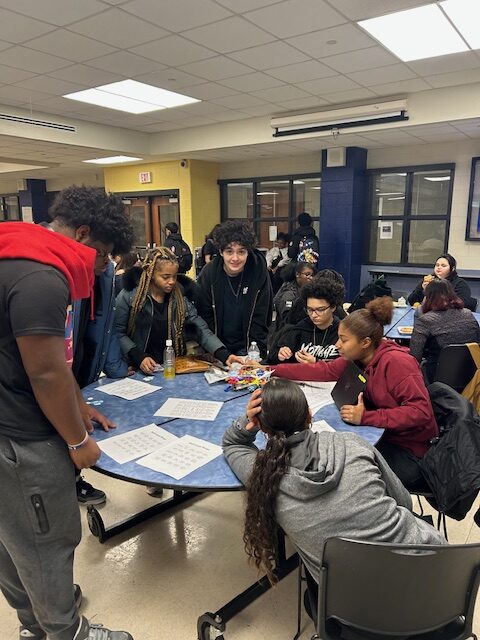
Researching our “Ripple Effects”
Since 2021, we have partnered with University of Missouri teen development specialist Dr. Jordan Booker to research the use of peer-to-peer models in youth suicide prevention programming.
With this ongoing research, we are focusing on achieving more rigorous research design by establishing control groups. For example, can we compare the mental health outcomes of OMM club members with non-participants at the same school? Can we compare the mental well-being of teens at schools with OMM clubs with that of teens at non-OMM schools in the same district? Through this more rigorous design, we will be able to assess the benefits of OMM club participation for individual club members; most importantly, we will also be able to unearth the mechanisms through which the OMM program could have a cascading effect across the school community, creating a cultural shift. The findings from this study will enable us to strengthen our models as we bring our work to scale.
our partners
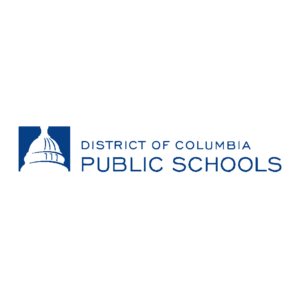
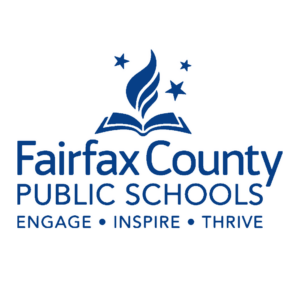
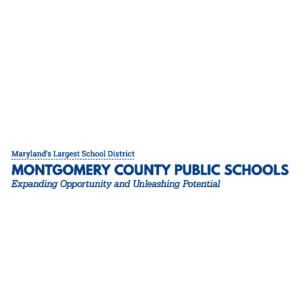
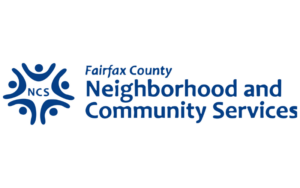
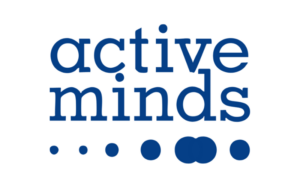
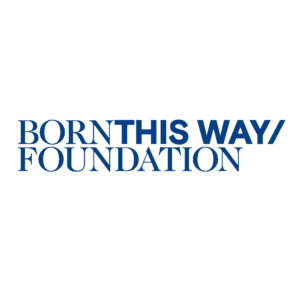
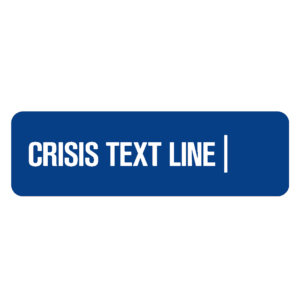
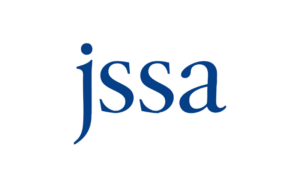

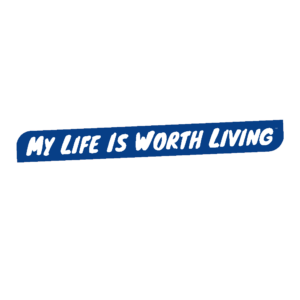
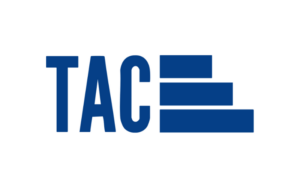
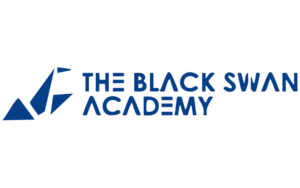
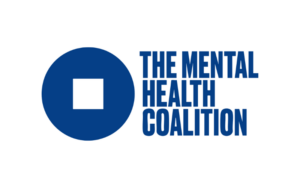

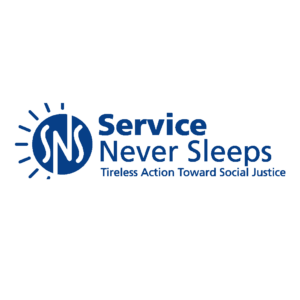
thank you to the mental health champions who donate to our work!
institutional funders
- County of Fairfax, Virginia
- Devon C. Rubenstein Foundation
- Hopewell Fund / Hollister Confidence Fund
- Imagine Learning Foundation
- Morgan Stanley
- Commonwealth of Virginia
- Fairfax County Public Schools
- Government of the District of Columbia
- Healthcare Initiative Foundation
- Jewish Social Service Agency
- Kettering Family Foundation
- Zephyr Impact Fund
- Community Foundation for Northern Virginia / The Sydalco Charitable Fund
- Garchik Family Foundation
- Harman Family Foundation
- if: A Foundation for Radical Possibility
- Joseph E. and Marjorie B. Jones Foundation
- Risa Fund
- Adventist Healthcare Community Partnerships Fund
- The Ally Coalition
- American Psychiatric Association Foundation
- Clark-Winchcole Foundation
- Dominion Guild
- Foley Hoag Foundation
- MTV Entertainment
- PHS Commissioned Officers Foundation
- Rosendin Foundation
- Arlington-DC Behavior Therapy Institute
- Van Metre Companies Foundation
- Yorktown High School
- Immanuel Presbyterian Church
- Rogers Behavioral Health
- Spur Local
- Community Foundation for Northern Virginia / Kara Foster-Bey Suicide Prevention Memorial Fund
- PennyLoafer, LLC
- Rockville United Church
- School First Education Consulting
- The Will To Live Foundation
individual donors
- Anonymous
- David Parker & Althea Lee
- Tim and Sue Anderson
- Jonathan Faubell
- Rhodes Family Foundation / Diane C. Rhodes
- Todd R. Kingsley
- Rachel and Todd Kros
- Whitney Parnell
- Mike and Michele Bradshaw
- Andrew Davis
- Aras Jizan
- Sharon J. Kemmerer & Elizabeth L. Halsey Fund
- Deborah Kimmel
- Jen Leyton-Armakan
- Len Levitt
- Beaman/McCain Charitable Fund
- David McAnulty
- Kurt and Marilyn Muller
- Michael and Michelle Roberts
- Paul Roellig
- Linda Ryan-Nicklas
- Simone Sawyer
- Amanda Shipe
- Dudley Ward
- Beth Werfel
- Kevin Anderson
- Martha Armour
- Gail Belt
- Jim Bullion
- Kristin J. Carothers Ph.D.
- Jay and Lisa Donegan
- Michael Dunn
- Gregory Difelice
- Sophie Hruza
- Dwight Iverson
- Sharon Kemmerer
- Anthony LaBarbera
- Kathleen LaBarbera
- Lance Matthiesen
- Robert Olcott III
- Matt Owens
- Jess Owens
- Roger Nastou
- Sonia Surakov
- Nahid Sabti
- Melissa Sporn
- Steve Stuban
- TJ Walsh
- Jean Yoon
Club demographics data sources: Race/Ethnicity, District partner data and NCS (N:1475); Grade level, club sign-in form (N:5361); Sexual orientation, 2023-2024 High school exit poll (N:310) (note that data for sexual orientation is only available for high school students); Gender, 2023-2024 High school, middle school, and teen center exit polls (N:444).
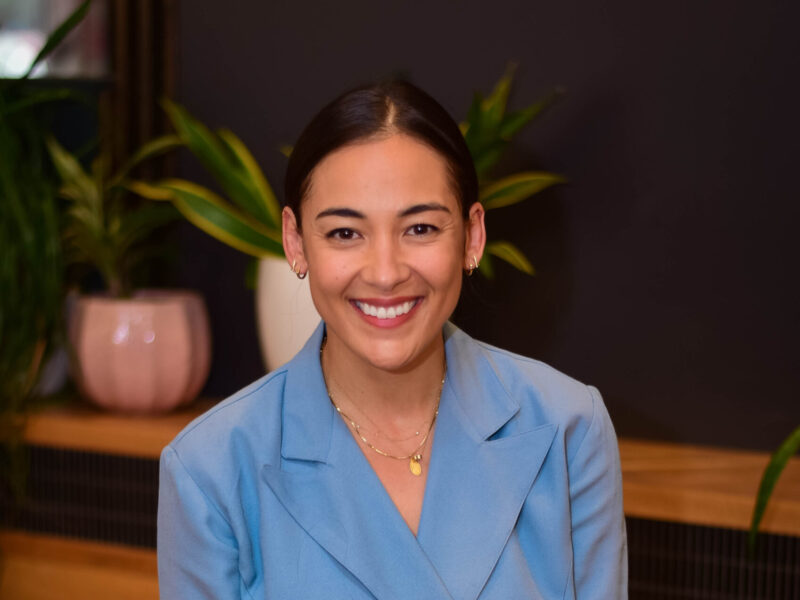
 Lauren Anderson
Lauren Anderson